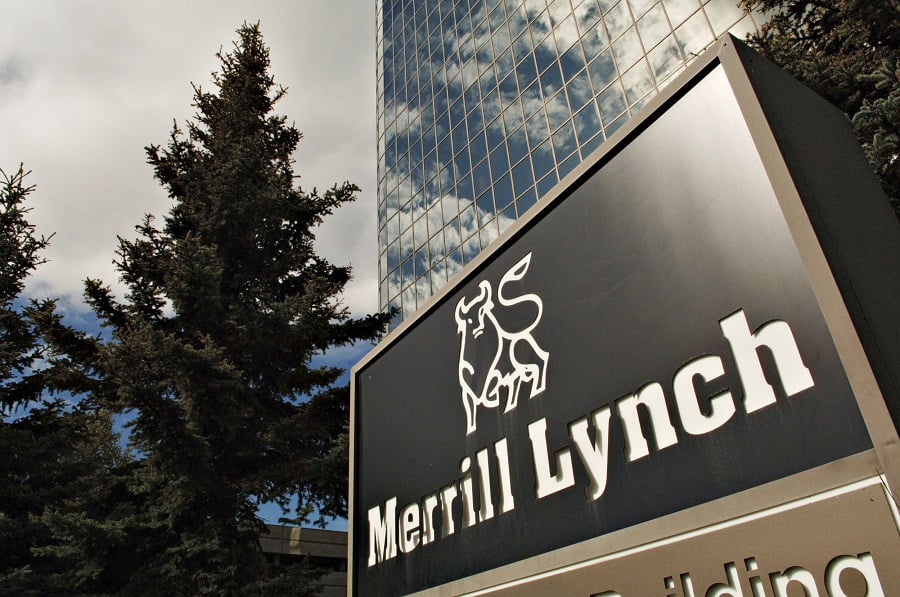

Near the end of a tough year to find new clients Merrill Lynch yesterday told its 14,000 financial advisers it was making minor adjustments to how they will be paid next year and in 2022, leaving the payout plan for its advisers unchanged with its focus remaining on growth.
"We're making minimal changes for the advisers' compensation plan and no changes to our incentive grid," said a senior Merrill executive who spoke on condition of anonymity. The term grid is industry shorthand for the complex structure of advisers' compensation at large institutions that typically have many parts.
The COVID-19 pandemic has made it a difficult time for advisers to prospect for new clients, advisers and industry executives have repeatedly said throughout 2020.
The changes though minor, will have an immediate impact, the Merrill executive said.
Starting in January, advisers will see a reduction in how they are paid for clients' holdings in cash accounts and money market funds. Compensation is being reduced to two basis points from four in such accounts, reflecting the cut in interest rates back near to zero made earlier this year by the Federal Reserve as part of the government's response to the COVID-19 pandemic.
And advisers will no longer receive any compensation for small accounts, or those with $250,000 or less. They currently get paid 20% of the revenue generated from such accounts, or about half what they are typically paid for client accounts.
For years, Wall Street firms like Merrill have been pushing their advisers to chase bigger, wealthier clients, and this latest move fits that thinking. Merrill is also making it easier for advisers who work in teams to get higher pay that matches the level of the most productive adviser on the team, the executive said.
In late 2017, Merrill unveiled a new pay grid, called the growth grid, which rewarded advisers who bring in a healthy number of net new accounts, while cutting the compensation of those who fall short of the new company goals.
Merrill advisers added over 40,000 net new household accounts in 2019. They are on track to add over 20,000 net new households this year, the executive said, during a time when the pandemic has made it increasingly difficult to prospect for new clients.

Driven by robust transaction activity amid market turbulence and increased focus on billion-dollar plus targets, Echelon Partners expects another all-time high in 2025.

The looming threat of federal funding cuts to state and local governments has lawmakers weighing a levy that was phased out in 1981.

The fintech firms' new tools and integrations address pain points in overseeing investment lineups, account monitoring, and more.

Canadian stocks are on a roll in 2025 as the country prepares to name a new Prime Minister.

Carson is expanding one of its relationships in Florida while Lido Advisors adds an $870 million practice in Silicon Valley.
RIAs face rising regulatory pressure in 2025. Forward-looking firms are responding with embedded technology, not more paperwork.
As inheritances are set to reshape client portfolios and next-gen heirs demand digital-first experiences, firms are retooling their wealth tech stacks and succession models in real time.
